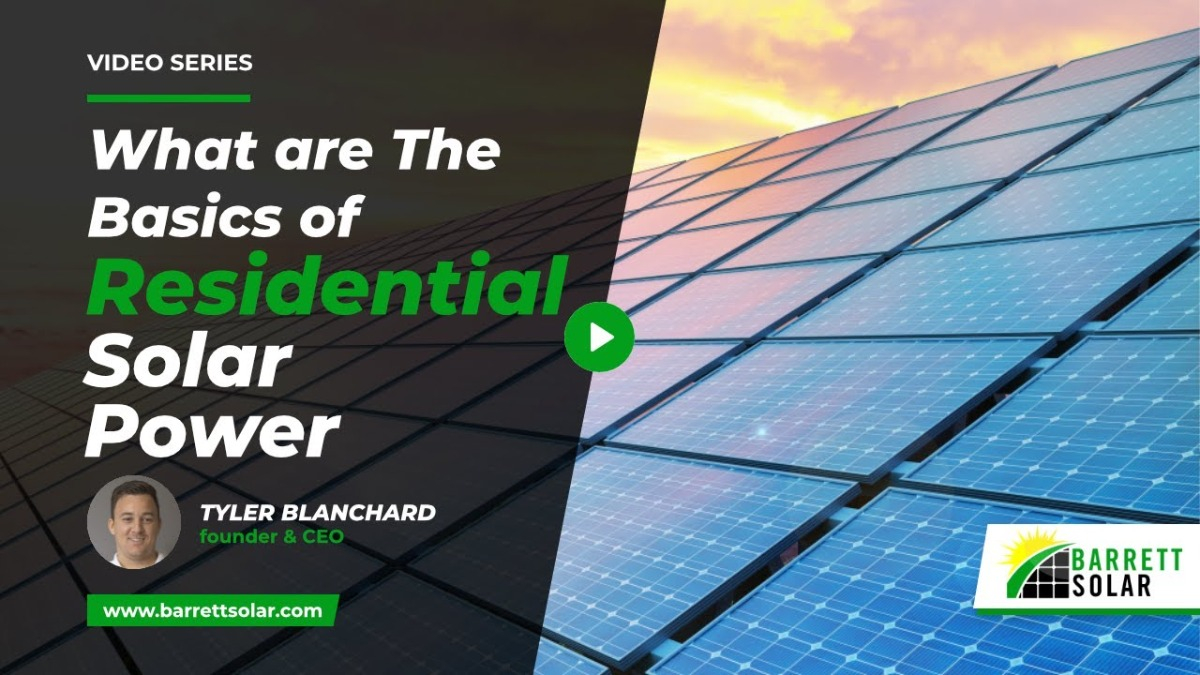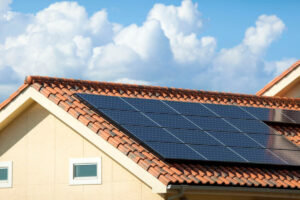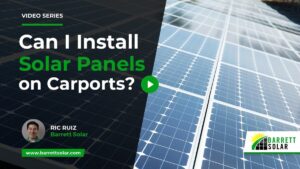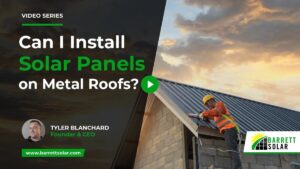From the outside looking in, residential solar power can appear incredibly complicated and foreign, with countless components and specialized equipment needs. While it is true that your solar installation will need equipment that you’ll likely have never seen before, it’s simpler than you might think, and your solar professional will make it even easier.
It Starts With The Panels
The solar panels are the first thing you’ll need and are responsible for actually creating the power from the light of the sun. Solar panels use a thin layer of photoelectric substrate that creates an electrical charge when it absorbs radiation from the sun’s light.
Each panel is composed of many smaller sections called “cells” that all create a portion of each panel’s current output. While these panels are usually the most obvious part of a solar power installation, they are useless without the appropriate supporting equipment.
Residential Power Needs Conversion
Since just about everything you have in your home that runs on electricity uses AC, or alternating current, the direct current or DC electricity that your panels produce will need to be converted to allow your appliances and devices can utilize it. This is where your inverter comes in, but while most solar installation companies use a single inverter, Barrett Solar uses a microinverter on every panel.
A standard inverter creates a single, expensive, point of failure for your solar system. Microinverters, however, give each panel the ability to create AC power, as well as the ability to easily isolate any failures for fast and easy replacement. The microinverters built into the panels installed by Barrett also include remote monitoring capabilities, so you and your solar professional can ensure they are operating optimally at all times.
Options For Mounting Your Residential Solar Installation
When considering the location of your residential solar equipment, you will generally have two options depending on your site specifics. The most common options are roof-mounted panels or a ground-mounted system, each having its own benefits and challenges.
Roof Mounts
Roof mounts are the most common solution in areas where there is enough roof area to support the number of panels that are needed. There are situations where the home may not have enough south-facing roofing area, so if your home fits into this category, your solar professional may recommend additional panels on the ground. If panels ever need to be replaced, they will require someone to be on the roof to do so.
Ground Mounts
For those with unconventional roofing, such as steeply sloped or flat roofing, or limited southern exposures, ground-mounted panels may be an option. While this mounting method does need some yard space, it can also make any potential future service easier by making the panels more accessible. Ground mounting is great for homes that are outside the city and have a little more space to work with.
Connections & Cabling
The various cabling and connections are how the system all comes together. Your panels will all be connected by your solar professionals to produce the appropriate voltage for your system’s needs. Then the solar panel array is connected to your home’s electrical distribution framework, as well as your new bi-directional power meter your utility company will install.
The Basics of Residential Solar Power: Trust Your Local Experts To Make The Process Simple
If you think you’d like to get more information about a potential solar installation, and want to discuss some of the numbers involved with your power needs and estimated costs, work with a trusted local solar expert. Reach out to Barrett Solar to get a free quote today, and decide if installing residential solar power equipment is right for your home as well as your future.







